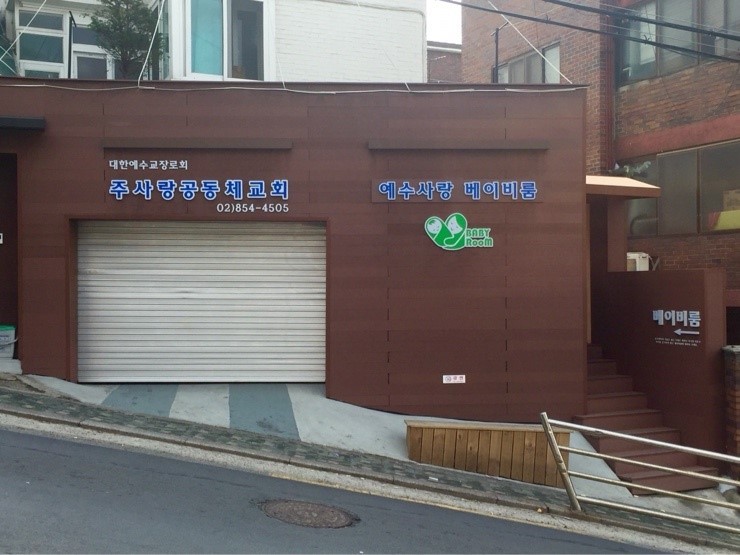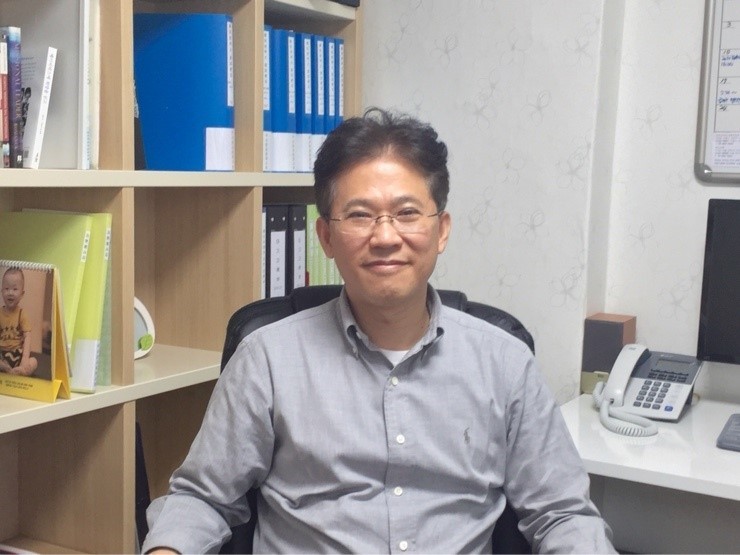This March, Lee Hyo-kyeong (member of Gyeonggido Provincial Council) announced the introduction of legislation in support of Baby Boxes. If this legislation passed, the organizations operating Baby Boxes, would qualify for local government funding. However, the plan was objected to by many groups, including Solidarity for Single Mothers, and eventually, the bill foundered.
First of all, what is a ‘Baby Box’? A Baby Box is very controversial issue and has even become a hot topic abroad. The controversial ‘Baby Box’ is a safe place, where people can bring babies and leave them anonymously, so that they could be cared for instead of abandoned recklessly. They are also known as Baby Hatches in other countries. In many countries, the battle over whether or not to keep Baby Boxes has been long fought and remains unsettled today, in most places. Last year, there were heated disputes about the legalization of Baby Boxes in Indiana, USA. A State Delegate proposed a bill that would see incubator sized Baby Boxes, sustaining warm temperatures installed in government facilities, such as police stations and hospitals. After a lot of debates, the bill received unanimous consent and the Baby Boxes were installed.
Baby Boxes have existed since medieval times. They originated from the ‘Founding Wheel’ in Italy in 1198. At that time, numerous drowned infants were found in the Tiber River, so Pope Innocent Ⅲ installed the Founding Wheel to keep babies safe, instead of killing them. This Baby Box system disappeared for a brief period, but was reintroduced in the late 29th century. Currently Baby Boxes are operating in 20 countries around the world including America, Germany, and the Czech Republic. However, there remain many arguments for and against them and their legalization.
People who are in favor of Baby Boxes insist that they save the lives of abandoned infants. This is because we lack facilities for parents who choose to give up their babies anonymously. Also, especially in Korea, after the revision of the Act on Special Cases Concerning the Promotion and Procedure of Adoption, the procedures for giving up a child for adoption, are more complex than ever, so mothers opt to abandon their child anonymously instead. Baby Boxes are therefore necessary, so that mothers can do so, safely.
However, people who are against Baby Boxes said this policy only encourages the abandonment of babies as it is easier than ever to drop the child off without risk of being detected. They believe that mothers should entrust their babies to official organizations, such as orphanages and adoption agencies as Baby Boxes cheapen the value of human life.
According to The Ministry of Health and Welfare, infant abandonment was on the decrease after 2001 and maintained a steady rate of about 200 to 300 children since 2006. However, there has been a slight increase in the number of abandoned children since the enactment of the 2012 adoption law. Also the number of baby boxes also increasing. These statistics show that baby boxes have become the last resort for anyone who doesn’t have the ability to raise their own child as well as an emergency protection for anyone who can’t.
 |
| ▲ The first Baby Box in Korea. |
In Korea, there are 2 Baby Boxes. The first one was founded in 2009 by ‘Lee Jong-rak’ a pastor at the ‘Jusarang Community Church’ in GwanakGu, Seoul. The other was founded by the ‘Saeganaan Church’ in Gunposi, Gyeonggido.
In the case of the ‘Jusarang Community Church’, they host a Baby Box program and a Baby Room. The Baby Room is a place where parents who are having difficulties coping with the birth of a disabled baby, or are even raising healthy children under difficult circumstances, can seek guidance and support not to give up their nurturing. Currently, there are many people who volunteer, helping families with cleaning, dish-washing and other arrangements regularly.
 |
| ▲ Cho Tae-seung, a pastor at the ‘Jusarang Community Church’ |
The Dankook Herald (DKH) interviewed ‘Cho Tae-seung’, a pastor at the ‘Jusarang Community Church’. First, the DKH asked about the start of the Baby Box program. “Lee Jong-rak, the pastor who founded the baby box program was rumored to give his disabled son lots of love and attention, and as a result, babies were sent to him for care. So he started to operate ‘Baby Box’ as a method of saving more babies, despite being abandoned by their parents,” he said. According to him, this church not only operates a Baby Box program, but also consults parents who want to give up their babies and gives financial support to poor parents who opt to raise their child. The DKH asked about any difficulties they have. “About 250 babies are sent to us per year. However, our community has been run by only personal support. Moreover, outside of general operating costs, labor costs and a shortage of employees are also problems for us. We have over 250 babies coming in boxes per year but only 6 staff working with them in this community,” he replied. Finally, the DKH asked how we could decrease the rate of infant abandonment. “Changes in the social perceptions of single mothers are necessary in Korea. And we don’t have any policies to protect or support single mothers. In the case of teenagers, they are reluctant to make a birth certificate. I think allowing anonymous birth certificates can be one way to stop teenage single mothers from abandoning their babies,” he said.
Baby Boxes may be the last resort for many women and girls. To decrease the abandonment of infants, improvements in abortion and child adoption laws are required. The obligation to register the birth of babies and the complicated adoption rules have definitely worsened the problem. What is needed is a plan to strengthen the support system and general welfare for families and parents choosing to raise their children by themselves, despite their difficult circumstances. Also, we have to change the negative perception of young and single parents. In other words, the best solution is to change policy and people’s perceptions. We all need to think of the fundamental reasons why this kind of thing has been a controversy and problem in our society.
허윤아, 이상현 dankookherald@gmail.com

![[Campus Magnifier] Let's Surf the Library!](/news/photo/202404/12496_1765_4143.jpg) [Campus Magnifier] Let's Surf the Library!
[Campus Magnifier] Let's Surf the Library!
![[Campus Magnifier] Let's Surf the Library!](/news/thumbnail/202404/12496_1765_4143_v150.jpg)





